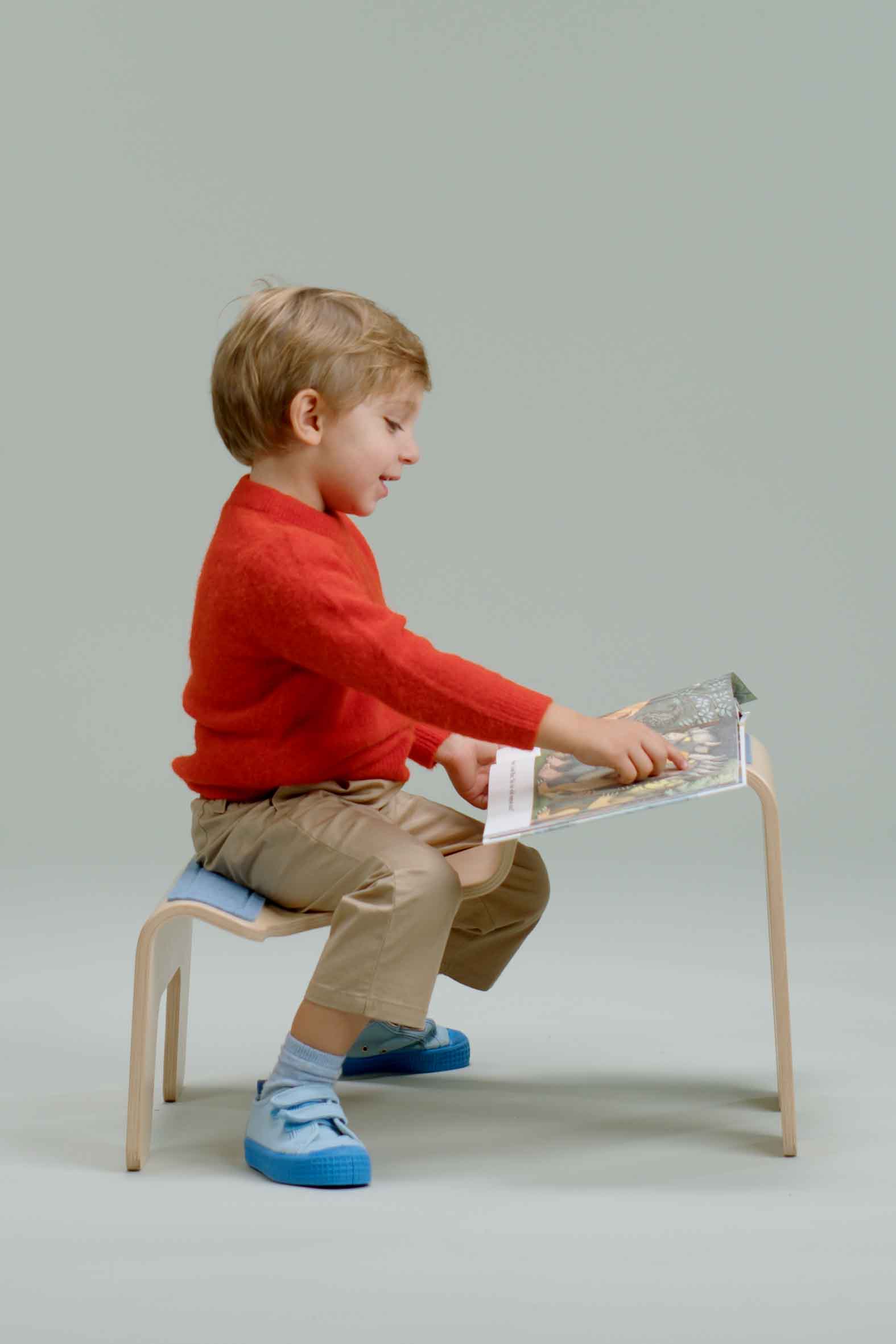
Lupa kids
The Lupa seat for kids allows a variety of sitting postures from kneeling and squatting, to cross-legged positions. While focused on a task children can reposition their bodies freely. Every postural change activates different muscle groups, which supports the child's physical health. As a result, Lupa enables good focus, longer endurance and playfulness.
School enquiry ︎︎︎ EMAIL US
Functionality
- For children from 7 to 10 years old
- Ideally used with desks between 52-60 cm high
- Designed as one piece, without any mechanical parts
- Lightweight and easy to move around
- Stackable five by five
Material
- Available in a wide range of merino wool felt colours
- Wooden frame manufactured in Estonia and made from local birch wood veneer
- Available with a natural water-based finish
Lentala / at school



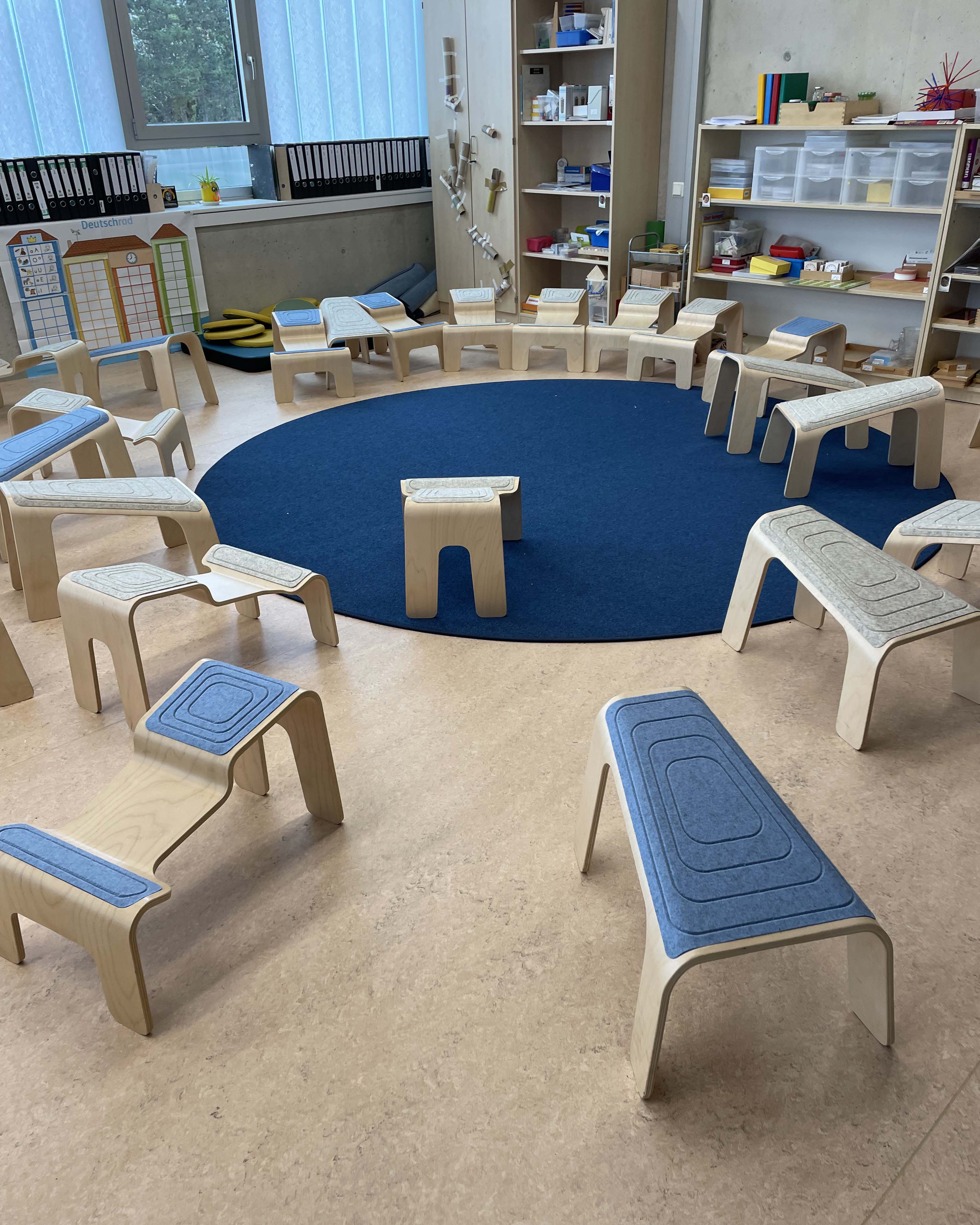
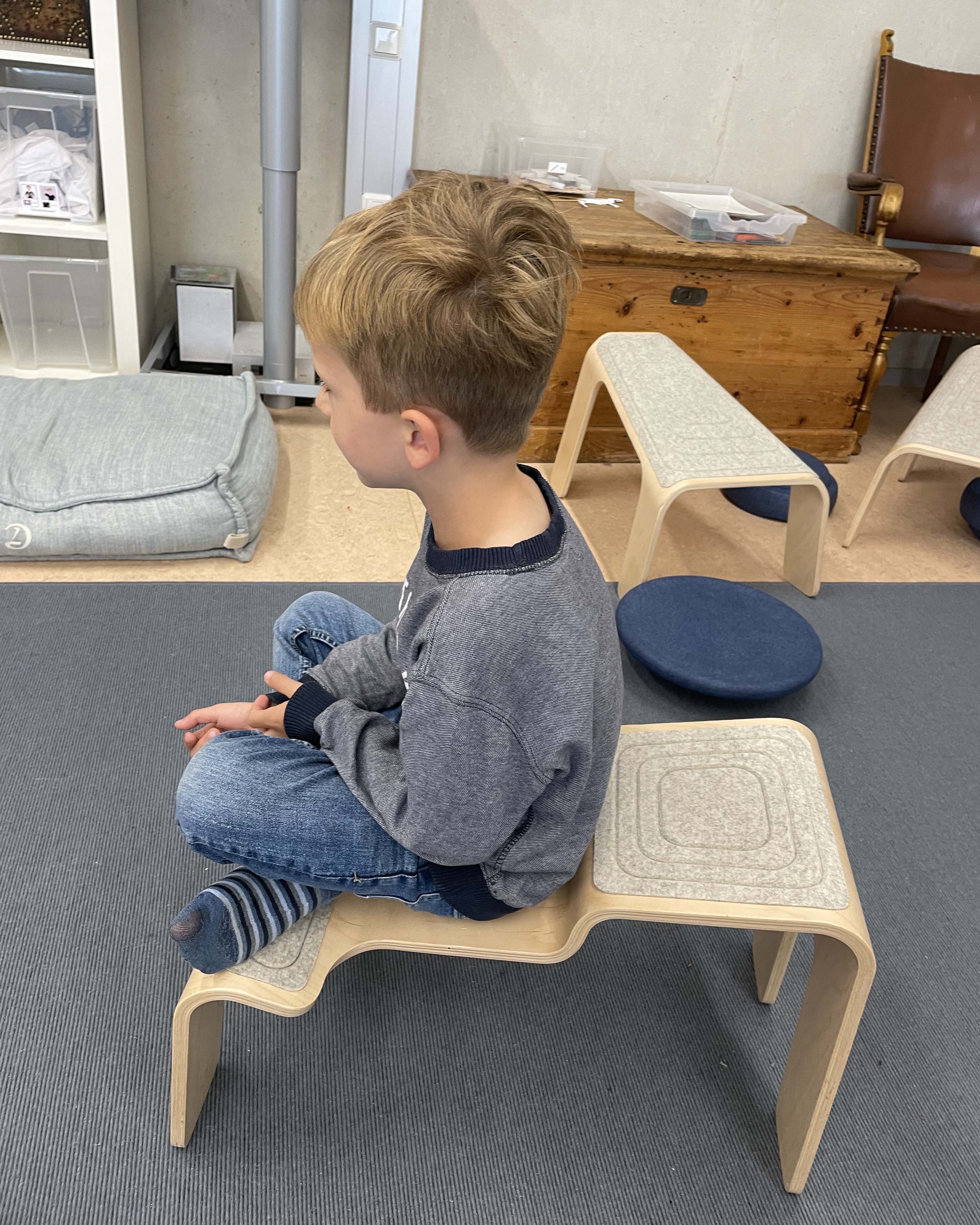
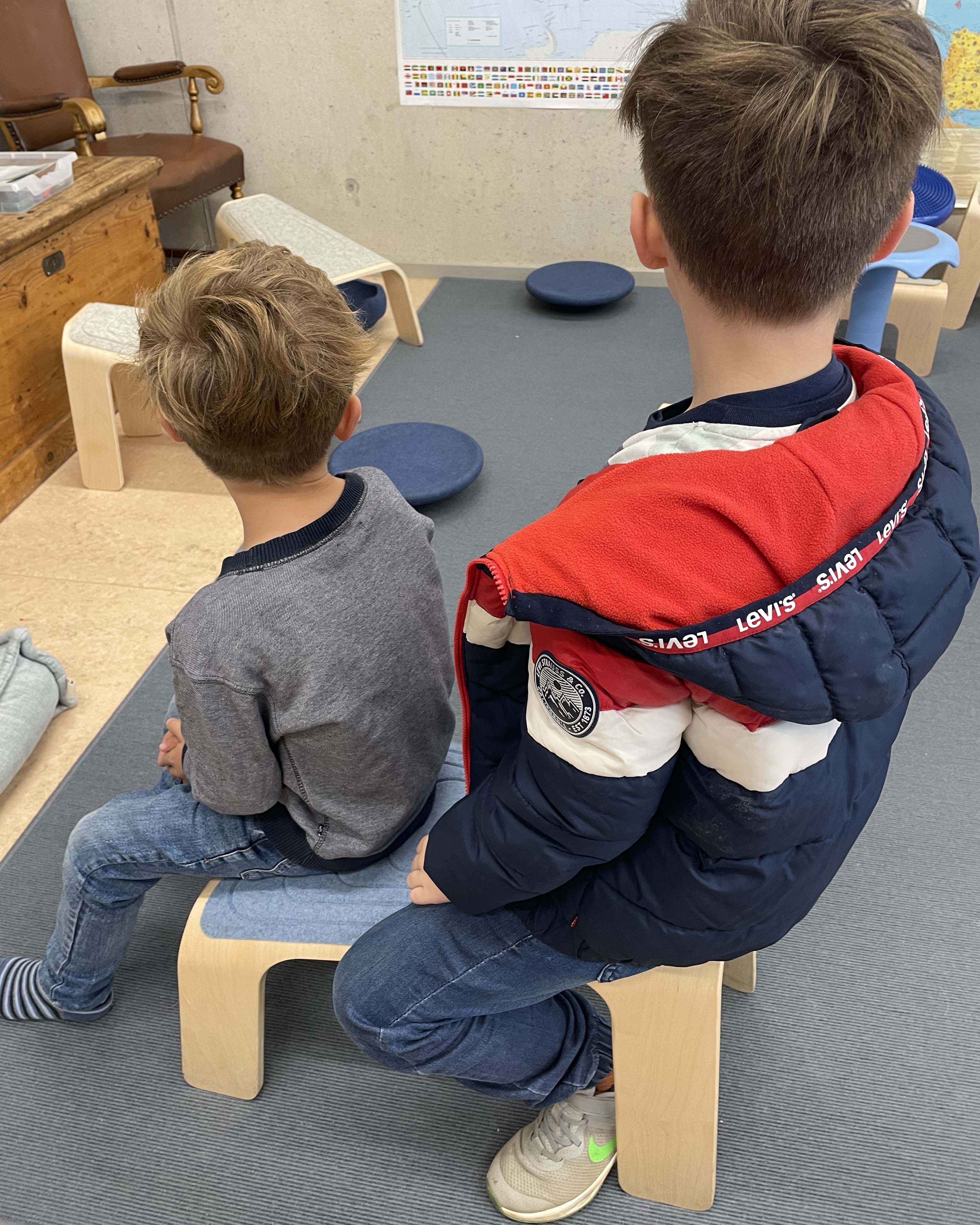
Lupa / designed for at least 8 sitting postures
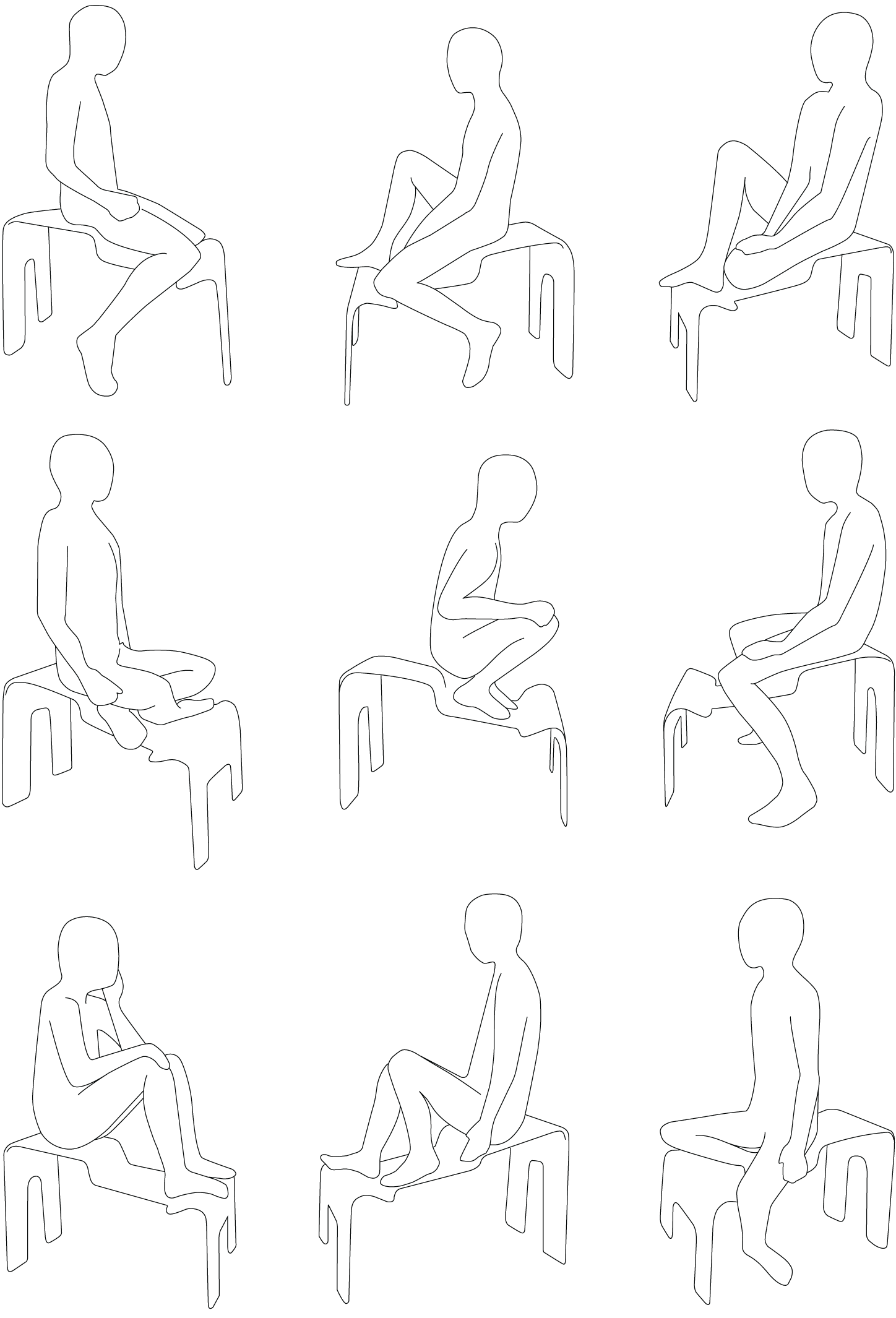
• Wider range of sitting postures
• Mild strengthening of the body
• Good focus and concentration
• Flexible joints
• Tested in schools
![]()
![]()
Lupa / inspiration

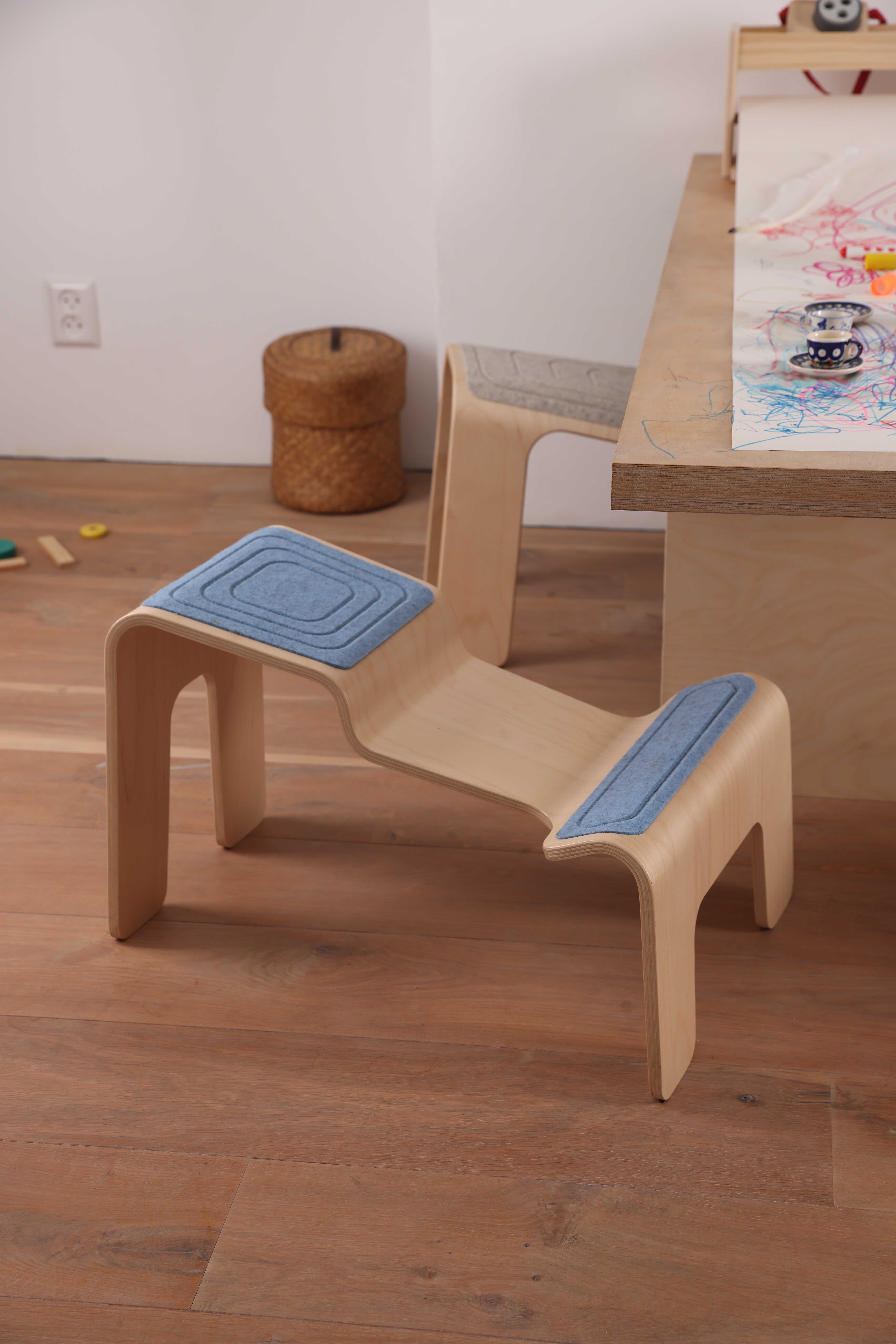
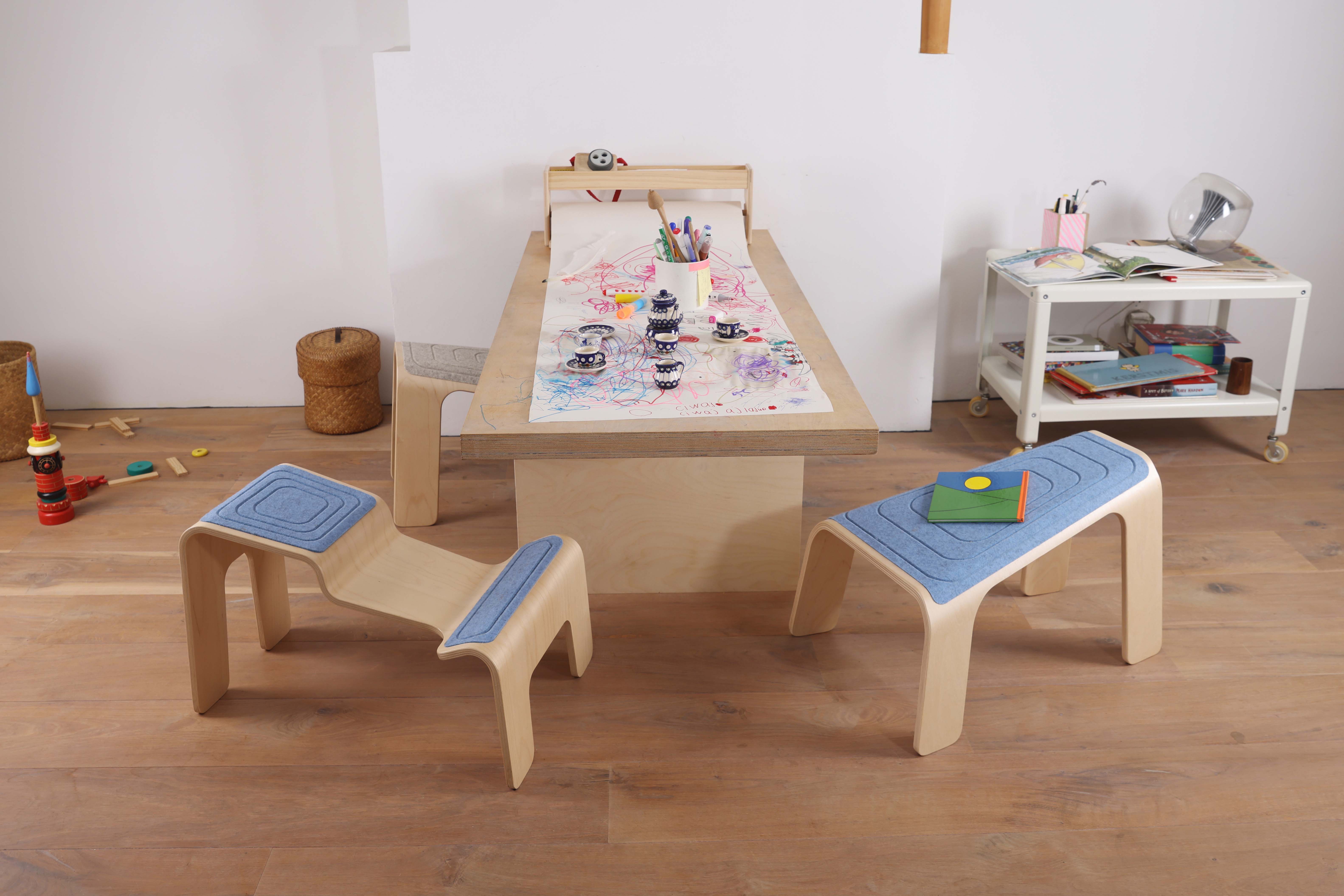
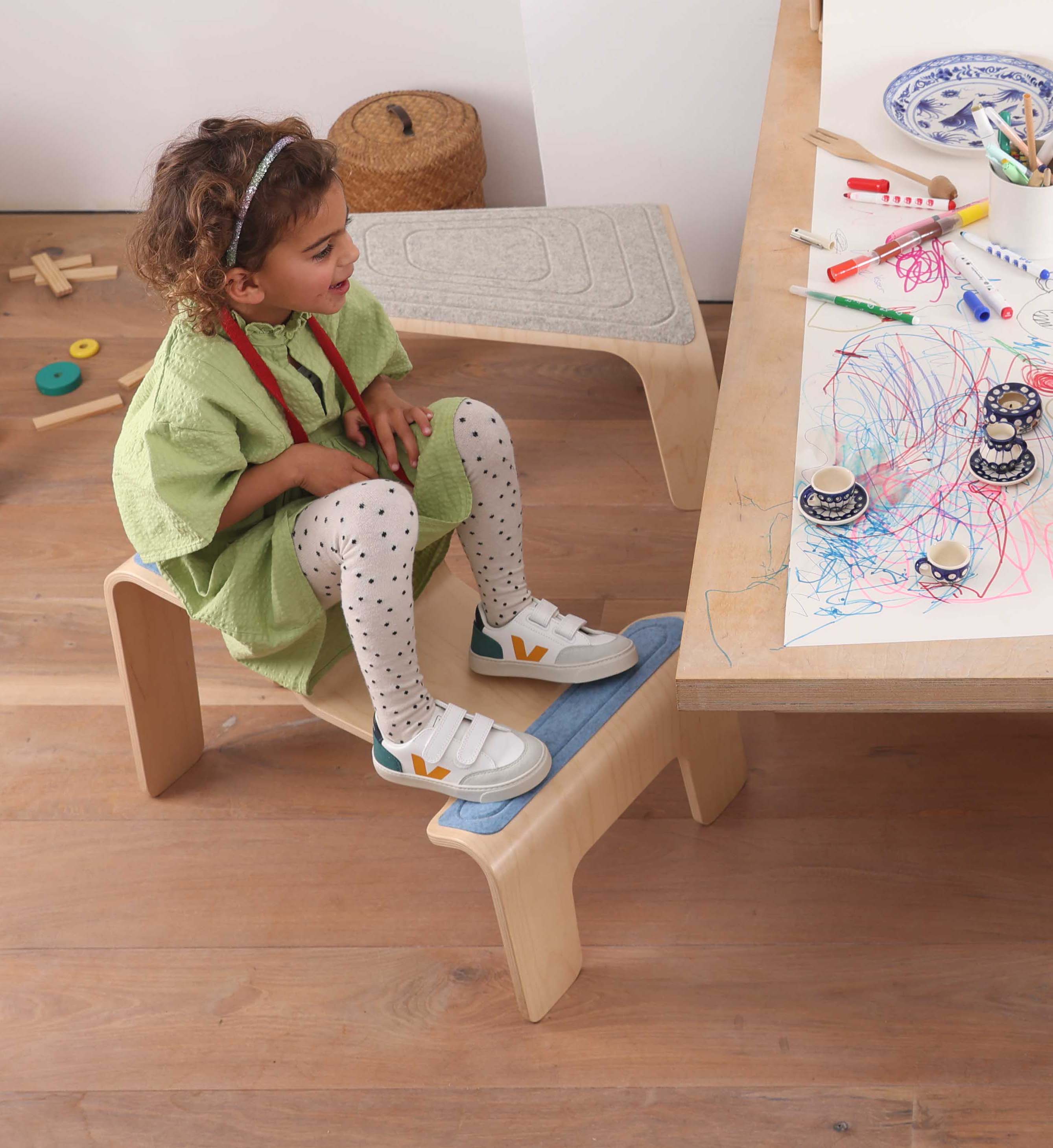


Design story / healthy sitting
Lentala’s two furniture pieces - Rom & Lupa - reduce the monotonous stress of sitting in one position and provide freedom in mobility. The seats offer an innovative sitting solution, pushing the boundaries of conventional chairs.
With the possibility to change your posture intuitively whenever you like and to try a multitude of sitting positions, the seats allow you to find your own healthy sitting style. Based on the most common universal sitting postures of all cultures and times, the seats are designed for active sitting. To ensure a comfortable sitting experience, all postures have been chosen so they can be held for some time. Every postural change activates different muscle groups, which helps to support your body’s physical health. As a result the seats enable better focus, longer endurance and more creative work.
The Rom & Lupa seats are pioneering designs developed through a unique interdisciplinary collaboration between designers and movement scientists.
With the possibility to change your posture intuitively whenever you like and to try a multitude of sitting positions, the seats allow you to find your own healthy sitting style. Based on the most common universal sitting postures of all cultures and times, the seats are designed for active sitting. To ensure a comfortable sitting experience, all postures have been chosen so they can be held for some time. Every postural change activates different muscle groups, which helps to support your body’s physical health. As a result the seats enable better focus, longer endurance and more creative work.
The Rom & Lupa seats are pioneering designs developed through a unique interdisciplinary collaboration between designers and movement scientists.
Through research performed by the University of Groningen and the Free University of Amsterdam it was validated that the designs significantly increase movement transitions and different sitting postures.


